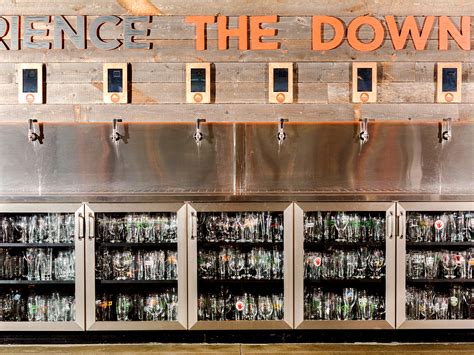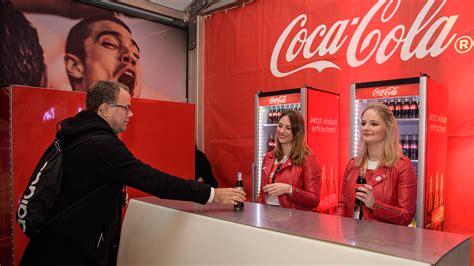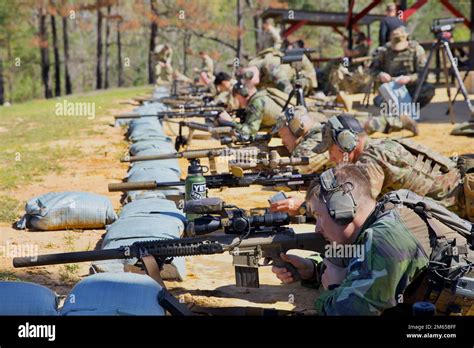
Local beer enthusiasts are mourning the impending closure of Burning Barrel Brewing Company, a prominent brewery in Rancho Cordova, California, slated to cease operations at the end of June. The brewery, known for its innovative craft beers and community-focused atmosphere, announced its decision citing insurmountable financial challenges.
Burning Barrel, which quickly gained a loyal following after its establishment, will officially close its doors on June 29th, marking the end of a significant chapter for the local craft beer scene. According to co-founder Duncan Alexander, the decision was not made lightly. “It is with heavy hearts that we announce that Burning Barrel will be closing its doors at the end of June,” the brewery stated on its social media platforms. “We’ve faced many challenges over the last few years, and despite our best efforts, we’ve reached a point where we can no longer continue operating.”
The closure reflects broader economic pressures impacting small businesses, particularly in the craft beer industry. Rising costs of ingredients, increased competition, and shifting consumer preferences have created a difficult environment for many breweries to thrive. Burning Barrel’s owners emphasized the difficult choices they faced.
“This was not an easy decision, and we’ve explored every possible avenue to keep our brewery alive,” said Alexander. “However, the financial realities have become too overwhelming.” The announcement has prompted an outpouring of support from patrons and fellow breweries in the region, highlighting the brewery’s impact on the community.
Burning Barrel’s journey began with a vision to create unique, high-quality beers that would resonate with the local community. Co-founders Duncan Alexander and Ted Peterson, both passionate about craft brewing, embarked on their venture with a commitment to innovation and collaboration. Over the years, the brewery introduced a diverse range of beers, from hop-forward IPAs to rich stouts and experimental barrel-aged brews, earning numerous awards and accolades.
The brewery also became known for its vibrant taproom, which served as a gathering place for friends, families, and beer lovers. Regular events, such as live music performances, trivia nights, and food truck rallies, fostered a sense of community and camaraderie. Burning Barrel actively supported local charities and organizations, further cementing its role as a community partner.
The news of Burning Barrel’s closure has sent shockwaves through the Sacramento region, where the craft beer industry has experienced significant growth in recent years. While the region remains home to numerous successful breweries, the closure serves as a reminder of the challenges facing small businesses in a competitive market.
“We are incredibly grateful for the support we’ve received from our loyal customers, employees, and partners,” said Peterson. “We’ve built lasting relationships and created memories that we will cherish forever.”
As Burning Barrel prepares to close its doors, the brewery is hosting a series of farewell events to celebrate its legacy and express gratitude to its supporters. These events will provide an opportunity for patrons to enjoy their favorite beers one last time and reminisce about the brewery’s impact on the community.
The final day of operation, June 29th, is expected to be a bittersweet occasion, filled with both sadness and appreciation for the journey that Burning Barrel embarked upon. The brewery’s owners and staff are committed to making the most of their remaining time, ensuring that the brewery’s legacy is remembered fondly.
The closure of Burning Barrel underscores the ongoing challenges facing small businesses in the craft beer industry. Factors such as rising costs, increased competition, and changing consumer preferences continue to impact breweries of all sizes. While the craft beer market has experienced significant growth in recent years, the industry remains highly competitive, requiring breweries to adapt and innovate in order to thrive.
Burning Barrel’s story serves as a reminder of the passion, dedication, and hard work that goes into building a successful brewery. The brewery’s legacy will live on through the memories of its patrons, the friendships forged within its walls, and the impact it had on the local craft beer community.
The owners have not yet disclosed their future plans but have expressed a desire to remain involved in the craft beer industry in some capacity. They are exploring various options and are committed to continuing their passion for brewing and community engagement.
The closure of Burning Barrel also raises questions about the future of the craft beer industry in the Sacramento region. While the region remains a hub for craft brewing, the closure highlights the need for breweries to adapt to changing market conditions and find new ways to differentiate themselves. Innovation, collaboration, and a strong focus on customer experience will be critical for breweries to succeed in the years to come.
In the meantime, the Sacramento craft beer community is rallying around Burning Barrel, offering support and celebrating the brewery’s contributions. Fellow breweries are organizing collaborative brewing projects and fundraising events to honor Burning Barrel’s legacy and help the owners and staff transition to their next ventures.
The outpouring of support demonstrates the strong sense of community within the craft beer industry and the shared commitment to preserving the region’s vibrant brewing culture. As Burning Barrel prepares to close its doors, its legacy will continue to inspire and influence the Sacramento craft beer scene for years to come.
The lasting impact of Burning Barrel Brewing Company extends beyond its beers and taproom. The brewery played a vital role in fostering a sense of community and connection, bringing people together through a shared love of craft beer. Its closure marks the end of an era, but the memories and relationships forged within its walls will endure.
The story of Burning Barrel is a testament to the challenges and rewards of entrepreneurship, the importance of community support, and the enduring appeal of craft beer. As the brewery prepares for its final chapter, its legacy will continue to resonate with beer lovers and entrepreneurs alike.
Further Analysis and Context
The closure of Burning Barrel reflects a multifaceted set of challenges facing the craft beer industry. While the industry experienced a boom in the past decade, it’s now confronting a more mature and competitive landscape. Several factors contribute to these difficulties:
- Increased Competition: The craft beer market has become saturated, with numerous breweries vying for shelf space and consumer attention. This intense competition makes it harder for smaller breweries to stand out and maintain profitability.
- Rising Costs: The cost of raw materials, such as hops, barley, and aluminum, has increased significantly in recent years. This puts pressure on breweries to raise prices, which can alienate price-sensitive customers, or absorb the costs, which can erode profit margins.
- Changing Consumer Preferences: Consumer tastes are constantly evolving. While IPAs have been a dominant force in the craft beer market, preferences are shifting towards lighter, more sessionable styles, as well as alternative beverages like hard seltzers and canned cocktails. Breweries need to adapt to these changing trends to remain relevant.
- Economic Downturns: Economic downturns can impact consumer spending on discretionary items like craft beer. During periods of economic uncertainty, consumers may cut back on non-essential purchases, affecting brewery sales.
- Distribution Challenges: Small breweries often face challenges in distributing their products to a wider audience. Limited distribution networks can restrict their reach and limit their ability to compete with larger, more established breweries.
- Regulatory Burdens: Breweries are subject to a variety of regulations, including licensing requirements, taxes, and labeling laws. Navigating these regulations can be complex and costly, especially for small breweries with limited resources.
Burning Barrel’s experience underscores the importance of adaptability, innovation, and strong community ties for breweries to succeed in the current market. Breweries that can differentiate themselves through unique beer offerings, exceptional customer service, and a strong connection to their local communities are more likely to thrive in the long run.
Impact on the Local Craft Beer Scene
The closure of Burning Barrel Brewing Company will undoubtedly have an impact on the local craft beer scene in Rancho Cordova and the broader Sacramento region. While the region boasts a vibrant and diverse craft beer community, the loss of a well-respected brewery like Burning Barrel is a setback.
The impact may include:
- Loss of Jobs: The closure will result in the loss of jobs for the brewery’s employees, including brewers, bartenders, and other staff members. This can have a ripple effect on the local economy.
- Reduced Competition: While increased competition is a challenge for breweries, a healthy level of competition can drive innovation and improve the overall quality of the beer scene. The closure of Burning Barrel will reduce the level of competition in the market.
- Shift in Market Share: The closure will likely lead to a shift in market share, with other breweries in the region potentially benefiting from the increased availability of customers.
- Impact on Local Suppliers: Burning Barrel likely worked with local suppliers for ingredients and other services. The closure may have a negative impact on these suppliers.
- Loss of Community Gathering Place: The brewery’s taproom served as a gathering place for the community, hosting events and providing a space for people to connect. The closure will eliminate this community resource.
- Potential for Innovation: While the closure is a loss, it may also create opportunities for new breweries or entrepreneurs to enter the market and bring fresh ideas and approaches to the craft beer scene.
The Sacramento craft beer community is known for its resilience and collaborative spirit. It is likely that other breweries and organizations will step up to fill the void left by Burning Barrel and continue to support the growth and development of the local craft beer scene.
Strategies for Breweries to Thrive
Given the challenges facing the craft beer industry, breweries need to adopt proactive strategies to thrive in the current market. Some potential strategies include:
- Focus on Quality: Producing high-quality, consistent beers is essential for attracting and retaining customers. Breweries should invest in quality control measures and ensure that their beers meet the highest standards.
- Innovation and Differentiation: Breweries need to differentiate themselves from the competition by offering unique and innovative beers. This could involve experimenting with new ingredients, brewing techniques, or beer styles.
- Strong Branding and Marketing: Building a strong brand and effectively marketing their beers is crucial for attracting customers. Breweries should invest in marketing efforts that showcase their beers, tell their story, and connect with their target audience.
- Exceptional Customer Service: Providing exceptional customer service can create a loyal customer base. Breweries should focus on creating a welcoming and enjoyable experience for their customers.
- Community Engagement: Engaging with the local community can help breweries build relationships and create a sense of loyalty. Breweries can participate in local events, support local charities, and partner with other businesses in the community.
- Adaptability and Flexibility: The craft beer market is constantly evolving, so breweries need to be adaptable and flexible. They should be willing to experiment with new ideas, adjust their strategies as needed, and respond to changing consumer preferences.
- Efficient Operations: Managing costs and operating efficiently is essential for maintaining profitability. Breweries should focus on streamlining their operations, reducing waste, and optimizing their supply chain.
- Collaboration and Partnerships: Collaborating with other breweries or businesses can help breweries expand their reach and access new markets. Breweries can partner with restaurants, bars, and retailers to promote their beers and reach a wider audience.
- Direct-to-Consumer Sales: Focusing on direct-to-consumer sales channels, such as taprooms and online stores, can help breweries increase their profit margins and build relationships with their customers.
- Financial Planning: Sound financial planning and management are critical for the long-term success of any brewery. Breweries should develop a comprehensive business plan, track their finances closely, and seek expert advice when needed.
By implementing these strategies, breweries can increase their chances of thriving in the competitive craft beer market and continuing to contribute to the vibrant brewing culture.
Frequently Asked Questions (FAQ)
-
Why is Burning Barrel Brewing Company closing?
- Burning Barrel Brewing Company is closing due to insurmountable financial challenges, as stated by co-founder Duncan Alexander. “We’ve faced many challenges over the last few years, and despite our best efforts, we’ve reached a point where we can no longer continue operating,” the brewery announced.
-
When will Burning Barrel Brewing Company officially close its doors?
- The brewery’s last day of operation will be June 29th.
-
What will happen to Burning Barrel’s employees?
- The closure will result in job losses for the brewery’s employees. The owners have not yet publicly announced details regarding severance or assistance in finding new employment.
-
Will there be any farewell events before the brewery closes?
- Yes, Burning Barrel is hosting a series of farewell events to celebrate its legacy and thank its supporters before closing.
-
What does the closure of Burning Barrel mean for the local craft beer scene?
- The closure highlights the challenges faced by small breweries in a competitive market. It may lead to a shift in market share among other breweries and emphasizes the need for innovation and community support within the craft beer industry. While a loss to the community, it also opens opportunities for other breweries and entrepreneurs.
The story of Burning Barrel Brewing Company serves as a case study in the current climate of the craft beer industry, demonstrating both the passion and the pitfalls involved in running a small brewery. Its closure will be felt by many, but its legacy will hopefully serve as a learning experience for other aspiring brewers and entrepreneurs.









